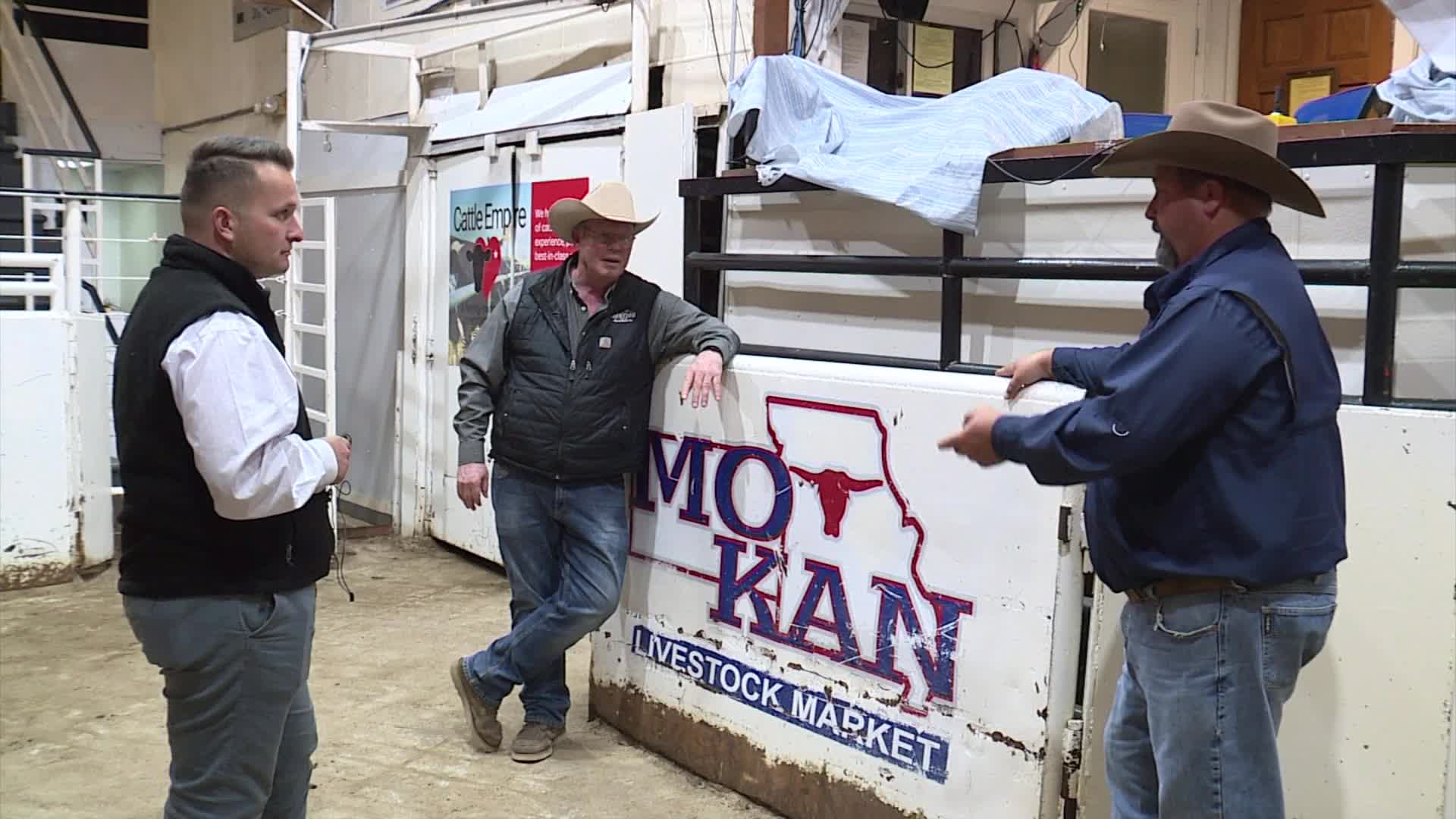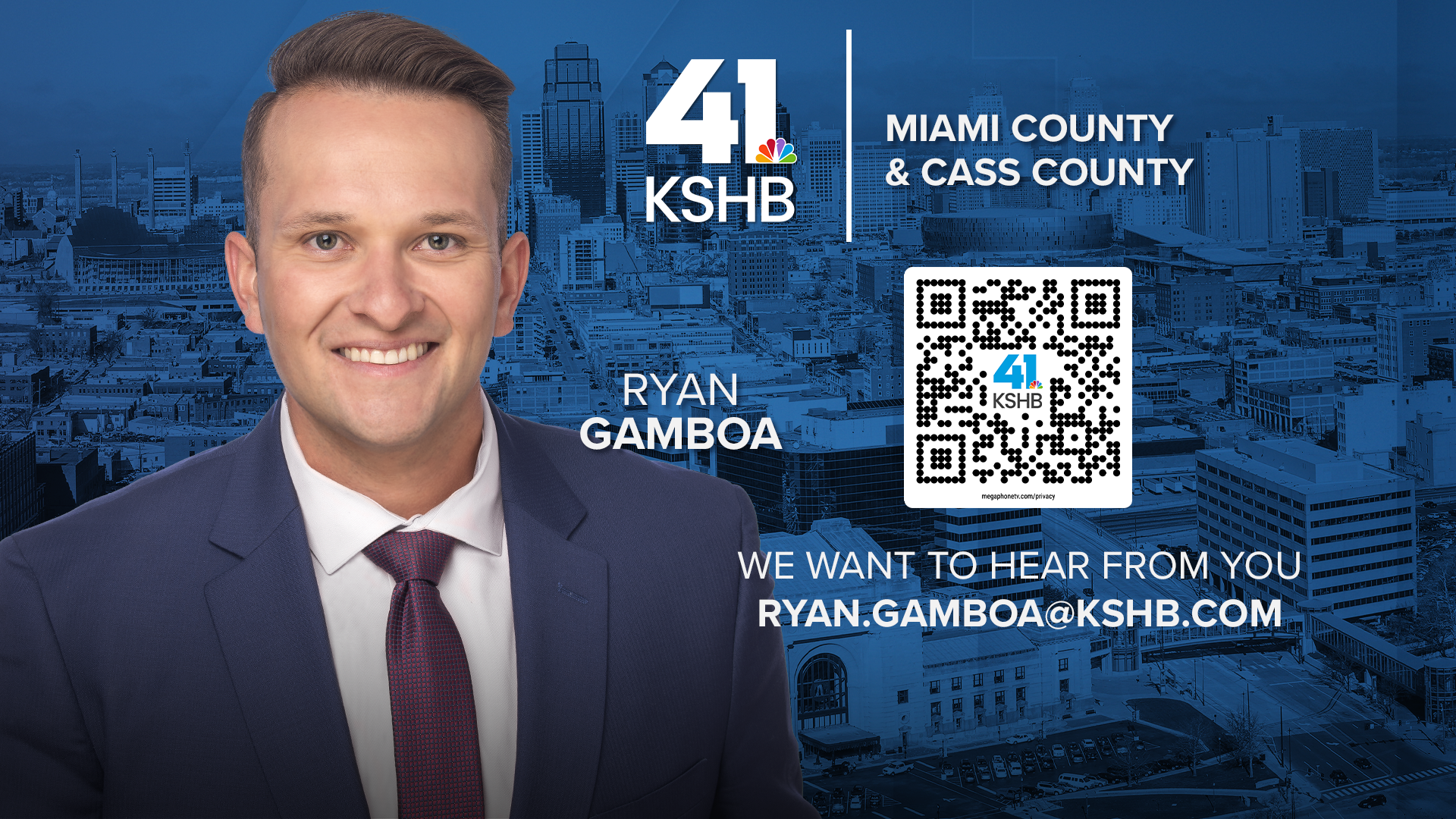KSHB 41 reporter Ryan Gamboa covers Cass County in Missouri and Agriculture topics. He has visited Mo-Kan Livestock Auction multiple times in the last year to share stories impacting the cattle industry. Share your story idea with Ryan.
—
Mo-Kan Livestock Auction Owner Jim Hertzog agrees with President Trump on his policy decisions, but when it comes to importing more beef from Argentina, he doesn't see eye-to-eye with the president.
"We don’t need it," Hertzog said.
President Trump said this week he would suggest the U.S. import more beef from Argentina. It's a decision the president believes would provide more relief to American consumers.
RELATED | Kansas City area cattle ranchers see beef marketing opportunity in trade war
"We would buy some beef from Argentina," Trump told reporters Sunday aboard Air Force One. "If we do that, that will bring our beef prices down."
After backlash from across the country, the President wrote on Truth Social that he's taking credit for the surging beef market and ranchers should lower their prices.

"The Cattle Ranchers, who I love, don’t understand that the only reason they are doing so well, for the first time in decades, is because I put Tariffs on cattle coming into the United States, including a 50% Tariff on Brazil," Trump wrote. "If it weren’t for me, they would be doing just as they’ve done for the past 20 years — Terrible! It would be nice if they would understand that, but they also have to get their prices down, because the consumer is a very big factor in my thinking, also!"
Hertzog disagrees with President Trump's assertion that he's the reason cattle ranchers are benefiting from high live-cattle prices.
There's numerous factors that go into determining the price one pays for beef at the grocery store — it isn't a choice of the producer.
Hertzog blames mother nature as a the driving force.

KSHB 41 reported on drought conditions impacting supermarket beef prices in November 2024.
Hertzog says drought forced many ranchers out of the business because of financial hardship. Cattle producers were forced to harvest their animals to make ends meet. That pushed the number of cattle in the U.S. cowherd to a 75-year low.
Cases of New World Screwworm, a flesh-eating parasite found in livestock herds in Mexico, caused the USDA to halt imports from America's next door neighbor earlier this year. This parasite has also impacted prices and the beef industry.

"I didn’t realize that he caused the drought for the past three years, I didn’t know that he come up with the New World Screwworm to infect the cattle in Mexico so that they couldn’t be imported," Herzog said.
The industry is searching for more solutions as farmers expect to turn a profit this year.
"We’re finally making money and surviving, instead of just surviving," said Auction Manger Steve Wheeler. "We’re actually turning a profit this year."
RELATED | Beef demand, prices reach near records highs while cattle industry struggles
Wheeler said operators making money this year are able to pay down debt or upgrade equipment. August market analysts reported inflation and interest are the biggest costs for farmers.

On Monday, the USDA rolled out a new plan to help bolster the cattle industry.
The department said that since 2017, the U.S. has lost over 17% of cattle ranches, more than 150,000 operations while demand for beef has grown approximately 9% over the past decade.
The plan has three key priorities:
- Protecting and Improving the Business of Ranching: Strengthening the foundation of U.S. cattle production through endangered species reforms, enhanced disaster relief, increased grazing access, increased access to capital, and affordable risk management tools.
- Expanding Processing, Consumer Transparency, and Market Access: Lowering long-term costs, increasing marketing options, and ensuring consumers have clear, truthful information about American Beef.
- Building Demand Alongside Domestic Supply: Growing the domestic herd while boosting domestic and international demand so that ranchers are not trapped in the boom/bust cycle that has defined past cattle markets.

The goal is to cut red tape to make the overall industry more profitable and sustainable.
"I think we should've done this before," Hertzog said.
RELATED | 'Just hang in there with us': Local rancher, Ag. economist on record-high beef prices
Wheeler remained skeptical stating, "When the government gets involved, it means more red tape."
Hertzog did suggest to implement new programs, similar to what was announced, but also programs to encourage more youth to get involved in livestock production.

With prior financial hardships around the weather, many operators got out of the business, leading to more strain to the market.
"Everybody is wanting to add cattle to the herd, and they are slowly," Hertzog said. "I don’t think we ever will get back to where we once were, the cattle numbers, the land is not there for it, and you don’t have enough people coming back into the business to do it."
RELATED | Beef prices up with drought, low cattle inventory
While the industry searches for a solution, Kansas State University Professor of Economics Brian Coffey suggests that solution isn't in South America.

"As far as picking Argentina specifically as a way to affect market conditions and retail prices, I am not sure about the reasoning behind that," Coffey said. "The amount of beef that Argentina has available for export, I think even if we can somehow convert all of their exports to the U.S., the quantity that is available there, isn’t enough to make a huge difference in our beef supply and beef prices in the short term."
Coffey said livestock producers would need to invest in head count now, but there may not be a return on that investment for about three years. If the markets were to change, cattle ranchers could be out their investment and supermarket beef prices may not change.

"Right now, prices are conveying consumers really want American beef. Beef demand is strong," he said. "Prices are also telling us that we have tight supplies on the cattle side. Until something happens in the marketplace to either relieve the supply side or decrease demand, there’s nothing there to decrease prices."
For now, cattle ranchers suggest the American consumer support U.S. grown and raised products because there is enough to go around.
"We have enough beef to support our own," Wheeler said.
—





